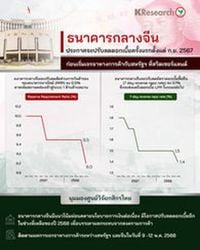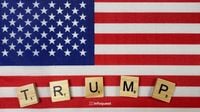In a significant diplomatic move, Chinese President Xi Jinping has dispatched his top public security aide, Wang Xiaohong, to Switzerland as part of ongoing trade negotiations between Beijing and Washington. This development, reported by the Wall Street Journal on May 9, 2025, underscores the critical nature of the discussions that are set to take place over the weekend.
The backdrop to these high-stakes negotiations is the ongoing economic tension between the United States and China, which has seen tariffs imposed on a wide range of goods, significantly affecting trade flows. Former U.S. President Donald Trump, in a press briefing on May 8, expressed optimism about the upcoming talks, stating that the discussions would be more substantive than initially anticipated. “I think we will have a great deal with China. I think potentially we have a lot of leverage, and in the meantime, we will have a lot of options. And frankly, we have more leverage than they have,” Trump remarked.
Trump's comments suggest a shift in tone as he prepares for these crucial discussions, which will be led by U.S. Treasury Secretary Scott Bessent, who is expected to meet with He Lifeng, China's economy czar. The former president hinted at a potential agreement that could reshape the economic landscape, saying, “I think we will have a great deal with China.” He also emphasized the need for China to open its markets to American goods, a long-standing demand from U.S. officials.
As negotiations approach, Trump also mentioned a possible strategy involving reciprocal tariffs, which could last for 90 days. This would allow him to negotiate with multiple countries, including China, while adjusting duties that currently sit as high as 145% on Chinese exports to the U.S. “You are going to get tariffs going to be probably at 145%, because I want them to reduce and I think we'll have a very good relationship with China,” Trump stated, indicating a tough stance moving forward.
In parallel to these developments, Chinese authorities are reportedly extending support to Credit Suisse, a key financial institution in Switzerland, to help address its ongoing financial challenges. This assistance is seen as a strategic move to stabilize the financial environment in Switzerland amid the trade discussions. The Wall Street Journal has noted the increasing importance of artificial intelligence in data analysis, which may play a role in the negotiations.
Trade relations between the U.S. and China have been fraught with tension, particularly since Trump imposed high tariffs on Chinese goods, which he argues were necessary to protect American jobs and industry. However, these tariffs have also led to retaliatory measures from China, affecting a wide array of consumer products and industrial goods.
Trump's administration has consistently pushed for a more favorable trade balance with China, insisting that American companies be granted greater access to Chinese markets. This sentiment was echoed in his recent remarks, where he stated, “We want to see them succeed,” highlighting a desire for a cooperative relationship that benefits both nations.
As the negotiations unfold, analysts are keenly observing the potential outcomes. Some experts believe that a successful agreement could alleviate some of the economic pressures facing both countries, while others caution that deep-seated issues may hinder progress.
In the context of these discussions, the role of public sentiment cannot be overlooked. Many Americans remain skeptical about the benefits of trade with China, citing concerns over job losses and economic dependency. Conversely, there are those who argue that a robust trade relationship is essential for both nations to thrive in an increasingly interconnected global economy.
In Switzerland, the atmosphere is charged with anticipation as both sides prepare for a weekend of intense negotiations. The stakes are high, not just for the economic future of the two superpowers but also for the global economy at large. The outcome of these talks may set the tone for international trade relations in the years to come.
As the world watches, the implications of the U.S.-China trade negotiations extend beyond mere tariffs and trade balances. They encompass broader themes of cooperation, competition, and the geopolitical landscape that shapes our world today. The decisions made in the coming days could reverberate through global markets and impact economies far beyond the borders of the United States and China.
In summary, the upcoming trade negotiations in Switzerland represent a pivotal moment for U.S.-China relations. With both sides expressing a willingness to engage, the potential for a breakthrough exists. Whether that potential will be realized remains to be seen, but the world is certainly paying attention.





